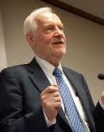 There are some ironic twists in the way social psychology is dealing with its “replication crisis”, and they may well threaten even the most sincere efforts to put the field on firmer scientific footing–precisely in those areas that evoked the call for a “daisy chain” of replications. Two articles, one from the Guardian (June 14), and a second from The Chronicle of Higher Education (June 23) lay out the sources of what some are calling “Repligate”. The Guardian article is “Physics Envy: Do ‘hard’ sciences hold the solution to the replication crisis in psychology?”
There are some ironic twists in the way social psychology is dealing with its “replication crisis”, and they may well threaten even the most sincere efforts to put the field on firmer scientific footing–precisely in those areas that evoked the call for a “daisy chain” of replications. Two articles, one from the Guardian (June 14), and a second from The Chronicle of Higher Education (June 23) lay out the sources of what some are calling “Repligate”. The Guardian article is “Physics Envy: Do ‘hard’ sciences hold the solution to the replication crisis in psychology?”
The article in the Chronicle of Higher Education also gets credit for its title: “Replication Crisis in Psychology Research Turns Ugly and Odd”. I’ll likely write this in installments…(2nd, 3rd , 4th)
^^^^^^^^^^^^^^^
The Guardian article answers yes to the question “Do ‘hard’ sciences hold the solution…“:
Psychology is evolving faster than ever. For decades now, many areas in psychology have relied on what academics call “questionable research practices” – a comfortable euphemism for types of malpractice that distort science but which fall short of the blackest of frauds, fabricating data.
Continue reading












